Last Updated on July 23, 2021

Brian O’Toole is an American film writer and producer, as well as a video game designer, a literary agent, and sometime Fangoria contributor. In addition to writing and producing CEMETERY GATES, EVILUTION and BASEMENT JACK, he’s was a co-producer and integral figure on Neil Marshall’s DOG SOLDIERS. I spoke with Mr. O’Toole about his start in the movie business, the state of the horror industry, and what he has in store for us in the future.
I should also mention that he’s a truly great guy!
Can you talk about how you first got started in the film industry?
BOT: I started out in grade school making movies with an 8mm camera and filming friends in my versions of Dracula and Jaws and then moved up to making homemade music videos of my favorite songs. However, after seeing Close Encounters of the Third Kind, I was bitten by the writing bug. I saw CE3K in theaters a dozen times and finally snuck a tape recorder in to record the film so I could go home and type up the movie in what I thought screenplay form might look like – Obviously this was before the time of home video. You kids don’t know how lucky you have it. I continued to write scripts and short stories throughout high school and college. In 1990, one of my scripts captured the attention of a literary agent. It was a holiday adventure called The Day Before The Night Before Christmas, and it was getting a lot of good buzz and there were option offers. So I did what many inexperienced writers did before me and moved to Los Angeles. Well, the heat on the script died soon after my arrival and I was left living in a one-room apartment on Hollywood and Cahuenga and working at a mall bookstore.
My agent, Leslie Kallen, took me on part time as an assistant and within a year I was working as a junior literary agent. As a writer, it was very enlightening to see the other side; pitching stories to studio executives and trying to sell other writers’ scripts. Something I learned as an agent is that new writers will most likely never sell an original script but their sample screenplay may get them a gig to write a producer’s idea. So, screenwriters, write a script in every genre. During my time with Leslie Kallen, I met two additional people that would become invaluable mentors to me, Richard Walter – UCLA’s Screenwriting Chairman, and Howard Kazanjian – producer of Raiders of the Lost Ark, Return of the Jedi and Rollercoaster. Richard really taught me about story and the art of screenwriting. And it is an art. You just don’t wake up one morning and say I’m going to be a brain surgeon. Why do you think you can as a screenwriter? Yet, I’ve read hundreds of scripts by people who did. Howard Kazanjian gave me the opportunity to read and give notes on some big studio pictures. He encouraged me when no one else would or could. Lucky is the man or woman with a mentor.
In 1993, I began slipping away from being an agent and moving toward script development. I really liked helping writers make their scripts more “Hollywood-Friendly”. I soon discovered an ugly reality: script readers were not expected to read the entire script. In fact the formula was read the first ten pages, the middle 20/30 and then the last ten. Also, after ten curse words you could stop reading because the writing was obviously amateur. I can understand this formula because sometimes there are a lot of scripts to read in a week and there is almost always an emergency weekend read. It was a factory mentality. I don’t know if it’s because I was a writer myself but I always read the entire screenplay because you never know what diamond might be hiding in the rock. Honestly, had I followed the Reader’s Guidelines; I would have never recommended Dog Soldiers for production. Also when I believe in a project, I fight for it. Case in point would be Cemetery Gates. When I was an agent with Leslie Kallen, I read a script called The Cemetery Gates – an epic tale about a mutated Tasmanian Devil. I couldn’t get any interest whatsoever. So I promised one of the writers, a Rhode Island ironworker, that if he trusted me I would get the film made. Well, twelve years later, and as many drafts, I did get Cemetery Gates made.
While working as a development person, I met producer Luigi Cingolani who at the time was with Smart Egg Pictures, producers of A Nightmare on Elm Street 1 -3, Critters, Adventures in Dinosaur City and Cameron’s Closet. He was trying to find distribution for two completed films, Fred Olen Ray’s Twisted and Rave!: Dance to a Different Beat, and brought me on as an associate producer to help him find homes for the films. When Smart Egg closed, Luigi and I started our own film company called Intrazone. It was a huge risk, but that was Luigi. Luigi remains one of the most forward thinking producers I have ever had the pleasure of working with. He was always one step ahead. He saw the marketing possibilities of the Internet and used computer graphics in films long before it became commonplace. In fact, the film we did together, SleepStalker: The Sandman’s Last Rights, was one of the first independent films to feature a computer-generated character.
Luigi Cingolani helped me start the video game designing part of my career. Back in 1995, horror films were a tough sell and Intrazone needed to expand its horizons. We were working with LIVE Entertainment at the time and they expressed interest in getting into the PC gaming arena. They had the video game rights to Speed Racer and a BMX magazine character called Radical Rick designed by Damian Fulton. We hired gaming guru Voldi Way, owner of WayForward Technologies, to orchestrate the technology behind the game creation. I was the director on both games. We premiered Speed Racer: Car with a Brain at the very first E3 (Electronic Entertainment Expo) and we received a lot of interest from the gaming press. Then, as fate would have it, the CEO of LIVE Entertainment Jose Menendez and his wife Kitty were shot and killed by their two sons and everything changed. LIVE became Artisan and Artisan didn’t want to get into the video game business so two awesome PC games were shelved forever. A little bit of trivia: Members of Guns ‘n Roses recorded a version of the Speed Racer theme song for the game. It rocks. I wish I had the rights to release it.
Intrazone ended for me in October of 1998. In late 2000, I was given the opportunity to join another production company through my friend Harmon Kaslow, who has a film Camille out on DVD now that is a twisted love story with James Franco, Sienna Miller and, in one of his last performances, David Carradine. The first film I made with them was Dog Soldiers. After that, I broke my horror mode for a dramedy about a Neo-Nazi who falls in love with an African-American woman who believes she is harboring the spirit of Hitler called Neo Ned. It starred Gabrielle Union and Academy Award Best Actor nominee Jeremy Renner. Then it was back to horror with three other horror films, including Death Valley and, finally, Cemetery Gates. By the way, Arrow in the Head was the first horror website that gave Cemetery Gates a truly favorable review. You guys understood exactly the kind of film we made. That really encouraged me, so thanks!
Was your initial focus on horror, or did you segue into it
gradually? I see you worked with the immortal Fred Olen Ray early on
in your career…
BOT: Actually, my training is in comedy. I studied at the Player’s Workshop of the Second City in Chicago in the late eighties. Improv helped me with my writing, especially dialogue. I really wanted to start a troupe like Monty Python or Kids in the Hall but unfortunately I found that everyone seemed to be honing their craft for a stand-up career. I miss comedy teams. I think the last great one was David Spade and Chris Farley. I would love to do a comedy, and have written a few, but financially they are not as successful as horror because of the foreign markets. Comedy these days is filled with pop culture references and tends to be more verbal than physical, which doesn’t translate well. Physical comedies, slapstick, are what sell overseas so if you want to make a comedy, make sure it’s full of slapstick. Horror is the genre that all people understand. A scare is a scare. No translation needed. My advice to anyone thinking of starting a film company is to do a horror movie first. The fan base, of which I proudly count myself as one, is big enough to help bring attention to your little film. They don’t have conventions for, say, Marley and Me, but they do for horror. Just be honest with your audience – which I feel the studio remakes are not – and fans will be forgiving and embrace your work.
As I said earlier, I didn’t work directly with Fred Olen Rey on Twisted. But I did meet him a few times in our offices on Sunset Boulevard when I was with Luigi Cingolani and I know there were talks of doing another project. Today, Fred is working with Cemetery Gates’ star Peter Stickles on the vampire TV show The Lair on Here! TV. Small world.

What was it like working on Dog Soldiers, and what is your relationship with Neil Marshall like?
BOT: Dog Soldiers will always remain a great learning experience for me but it really was a textbook example of why working in development can be a mental mind bender. Neil Marshall had been trying to get the film made for a few years before I was given a script to read. I found that the draft moved at a glacial pace with a story structure similar to Night of the Living Dead and peppered with a lot of soccer references. But I saw something there and really pushed the company into doing the film – with changes. I was most certainly laying my job on the line pushing Dog Soldiers into our production schedule.
January of 2001 I traveled to London to meet with Neil and producer Christopher Figg, under a rare red moon. We sat at a table, having just met, and to my surprise it was suggested that we go page by page with my script notes – something I wasn’t expecting to do so soon or in that arena. From past experiences, I had learned that it was always best to ease into critical talk with an artist. By the end of this very long day, it was clear that I hadn’t made a friend in Neil Marshall – which is the cross we development people have to bear sometimes. Of course, I still had to do my job as both development and co-producer and continued giving notes and suggestions – often based from dailies on VHS tapes. They don’t call it “development hell” for nothing.
Although the film was shown in theaters overseas and often ranked in the top ten, in the United States we had the unfortunate timing of showing the film to distributors just after 9/11, when no one wanted to see soldiers or werewolves. Eventually, a deal was made with the SyFy channel and Dog Soldiers became a SyFy Original Movie. The upside was that I was able to travel across the country and watch the film on the big screen at many festivals. I’ll never forget when I saw the Dog Soldiers poster framed with the Spider-Man poster at the Alamo Drafthouse Cinema in Austin, Texas. It was the first film I was involved in that showed in a theater and it was a proud moment. Eventually, Dog Soldiers developed a huge fan base, which I am extremely humbled by and grateful for. I love hearing the fans’ personal stories about the movie at conventions.
As a life long horror fan, my greatest achievement with Dog Soldiers would be winning the Saturn Award for 2002 Best DVD Release. It was awesome to be rewarded for the work we all had done. And it most likely saved my job.
Tell me about Black Gate Entertainment and the horror trilogy
you’ve forged with BASEMENT JACK, EVILUTION and THE NECROPOLITAN. How are the films connected?
BOT: Actor Eric Peter-Kaiser, who had a lead role in Disney’s Miracle, saved me from obscurity when he decided to add a horror division to his Island Gateway Films production company. Anyway, Black Gate Entertainment was born. We decided to do a trilogy of films and decided to do a zombie film, a slasher movie and a creature feature. Then, Eric came up with the brilliant idea of linking the three films together. Initially, I was stuck on the linking. I didn’t want to do the bookend thing with a spooky narrator or a mini story as in Twilight Zone: The Movie or Creepshow. Then, I thought about a puppet master who could manipulate the characters in the stories for a bigger, perhaps more spiritual, reason – a manager who lurked in the background. It was a risky move and I’m so glad Eric stuck with the concept because I had my doubts it would work. Enter actor Nathan Bexton. He immediately grabbed hold of the Manager character and made it his own. With the help of costume designer Susan Chan, a new horror icon was born and I couldn’t be happier. Now my biggest worry is living up to the character Nathan has created for The Necropolitan.
Evilution was born from the xenophobia that crept across our country during the first months after 9/11. I am obsessed with zombie films; my favorite film of all time being Romero’s Dawn of the Dead. However, as I started writing the script, I really wanted to do something that hasn’t been seen in a zombie film. So I went back to read the first zombie tale, Mary Shelley’s Frankenstein. The novel inspired me to make the alien zombie virus sympathetic. It became an alien intelligence that was looking to communicate with humans. However, we as a species had not evolved enough so when the virus invaded the body, it de-evolved the host turning him back to an almost Neanderthal state. The virus was passing itself in human saliva through bites, leaving the previous host a cannibalistic menace. The military gets a hold of it and discovers a bizarre side effect: The alien virus can resurrect the dead. The military tries to control the virus to create an army of the dead but only succeeds in making it hate us. Evilution was originally a very big movie; my version of The Poseidon Adventure inside a mysterious apartment building with zombies. Eric and I poured over the pages everyday trying to make it tighter, more claustrophobic. I think the final version is a very exciting and fun tale that remains true to the original themes.

Basement Jack came from my longtime love affair of slasher movies. Of course, writing in a well-worn genre you try to infuse some new blood into it. It was clear to me that slasher films were very much like Westerns: the Sheriff was the virginal survivor and Black Bart was the masked, sexually oppressed killer. The other thing that previous slasher movies never really got into was the head of the killer so I thought it would be interesting to go there. I also have a fascination with lightning because in sunlight there are always shadows but lightning exposes all things. Combined all that with an Irish-Catholic upbringing and you have the makings of a serial killer film.
The Necropolitan will be the third film in the series. This time around, we focus on the Manager and reveal who he is and why he is tied to the apartment building. And, most importantly, it’s a creature feature! And it will be in 3D! Like Evilution, The Necropolitan started off as this epic tale about good and evil and has been slimmed down to a more personal tale about the Manager and the apartment building. It is where all answers will be questioned. Currently, we are seeking financing and hope to have the film before cameras by year’s end.
Can you talk about your days at Fangoria, and how that may have
helped your progression into filmmaking?
BOT: The May 2010 issue of Fangoria will mark my fifth year writing the “Horrorcade” column. I went off the rails when then Editor Tony Timpone offered me the position. He knew about my insane love of video games, especially survival horror ones. What a dream come true! I had been reading Fangoria since the very first issue back in 1979. In fact, I still have that issue and it has gone with me on every movie set I’ve ever worked on. I almost lost it while making Cemetery Gates when the cave we were filming in flooded during an L.A. rainstorm. Luckily, my backpack was waterproof enough. In the 30th anniversary issue, I was given the opportunity to write a remembrance piece about Fangoria. That was a great honor.
I’d be lying if I said that Fangoria hadn’t been very, very good to me. It started with the filmmaking articles I read through the years to getting the video game column to having them premiere Evilution and Basement Jack during their Weekend of Horrors in New York, Los Angeles and my hometown Chicago. I just found out that Tony Timpone has stepped down as editor to head the Fangoria Video on Demand arm. Chris Alexander has taken over his position and I’m excited to see what changes he’ll make. Hopefully, more focus on horror games because, let’s face it, until horror is back in the hands of the independents, horror games are the place to find the genuine scares. I’m playing the hell out of Aliens vs Predator right now so if anyone wants to challenge me on line, my Xbox360 gamer tag is Dog Soldier BOT and my PS3 gamer tag is wereBOT.

Do you have plans to work in 3D anytime soon?
BOT: The Necropolitan will be filmed in 3D. But not gimmicky 3D. I want to model it after Hitchcock’s Dial M For Murder. It will be interesting to see how well home 3D does in the next year. I think people will really embrace the innovation once the glasses-free 3D TVs are available.
Can you go into detail about the rigors and difficulties of locking
down financing for your films? I’m sure that’s an area of great
interest to all the self-starters out there trying to get their films
off the ground.
BOT: The consumer-friendly digital revolution has allowed young filmmakers to be able to purchase the same cameras we use here in Hollywood, allowing them to create with the same quality. The consumer has become the creator. Instead of just watching others’ films, young filmmakers can go out and practice their art, develop their own styles. The problem is that everyone with ten friends decided to make a zombie movie and soon the market became glutted with material, driving down distributor interest and advances. The weeding out process had to be changed. There was a time when you were asked “Wanna go see She’s Out of Your League?” and your natural response would be “Who’s in it?” But if someone said, “Let’s go see Jaws” you’d ask “What’s it about?” That has changed. Even horror films must have known cast in them now. And that’s something that Mr. or Mrs. Filmmaker in the Midwest do not have access to – yet. Distributors, both domestic and foreign, hold the cards right now and casting agents are your best friends.
Originally the way to seek financing went like this: Have an interesting, high concept idea/script, letters of intent from recognizable actors and have a distribution deal in order to start submitting to financial prospects.
However, with the new digital revolution, filmmakers have a greater opportunity to sell their films themselves. The Internet and Social Community Networks like Facebook and My Space have opened up millions of prospective audiences to the new filmmaker. For none to very little money, filmmakers can film, format, manufacture, package, merchandise, and promote their own movies. PayPal is your store front, or eBay or create your own pay service. Video on Demand and streaming video services like Netflix, Xbox 360, PlayStation 3, Nintendo Wii, Apple TV and Vudu will soon be starving for material.
There’s a new buzzword in filmmaking called Transmedia. It’s a very exciting concept for the new filmmaker that is being championed by Robert Pratten of Zen Films. Basically, it asks new filmmakers to look at the resources available to them to jump start their films, drawing attention to them in new ways and stimulate interest from prospective financiers and distributors before the actual film is made. Transmedia is looking at the Internet as a way to franchise your picture. For example, before we start The Necropolitan, we may shoot a couple of shorts with the Manager and post them on You Tube and our Facebook fan page (IGF/Black Gate Entertainment) to pique interest in the project. Based on the response, we can use that information to help secure financing or distribution. It is an exciting time for Indies right now. In the end, to quote screenwriter William Goldman, “Nobody Knows Anything.” Just do it and have passion about it and success will come.

What advice would you give to those young filmmakers trying to make it on their own..?
BOT: You will never make it on your own. To survive Hollywood, you need a buddy system. I wish someone had told me that when I first arrived to California. If you’re moving to Hollywood, do it with your film school buddies or at least one friend, but not a girlfriend or a boyfriend, that relationship will be doomed. Share a one bedroom. Stick together. You’re going to need each other as you climb the Hollywood fence. And if you can hold on five years, recognition will come your way. That seems to be the time frame for Hollywood success.
Let’s see, what else? Oh, a friend who will read your script or sit through your film during editing and give you honest criticism is worth their weight in P cards. Network! Network! Network! Put your work out there. Post it on You Tube or embed it on your Facebook page. Let it be seen. If you’re a writer, be prepared to do a lot of spec writing, i.e. for free. Just say yes to everything and figure out how to do it later. And remember the ultimate Hollywood truth: Believe in yourself and stick with your friends because you can’t make Hell a better place.
What are your plans for the future? Are you trying to expand your
brand into bigger things? (In terms of budget, distribution, etc.)
BOT: Eric and I have quite a few things on our plate. We are stepping outside of horror with a dramedy about a man giving up the working world to follow a dream and the nutcase that helps him achieve the goal. I’m rewriting A Necessary Evil, a modern take on the Elizabeth Bathory story. We also have a ghost story called Outside the Eye of God. Of course, it is every film company’s goal to grow and do bigger pictures. We wouldn’t complain if a studio deal came our way. But until then, we enjoy working in independent film, especially horror. Horror fans will never let you down.
Black Gate Entertainment is in its third year and Eric and I have accomplished quite a lot but we are here for the long term. The support we have received from family and friends and the fans and webzines like Arrow in the Head motivates us to deliver bigger and more original product. Hopefully, there will come a time when we can give back and support more young filmmakers. After all, we’re all in this together.
I’d like to thank Brian and David Pike from Brink DVD for their time and help.




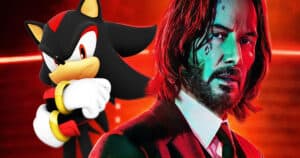

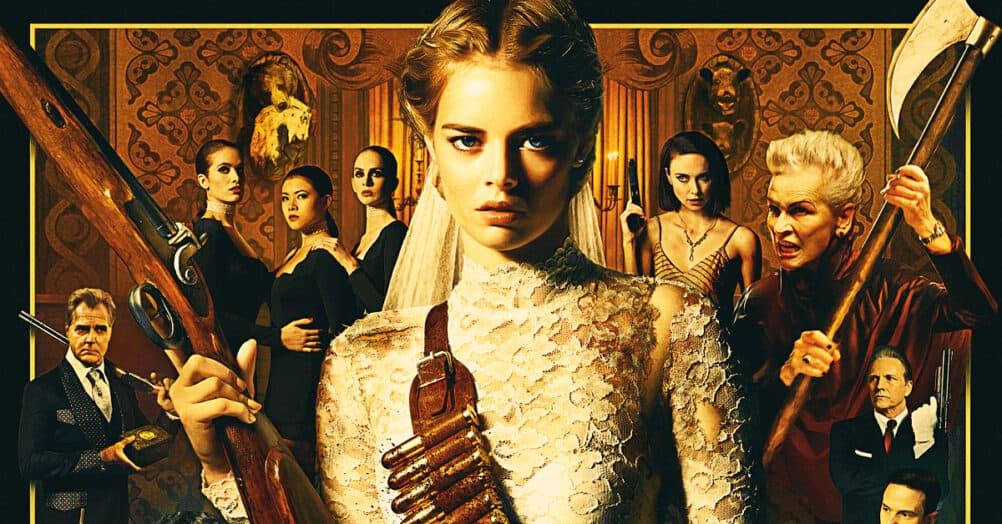
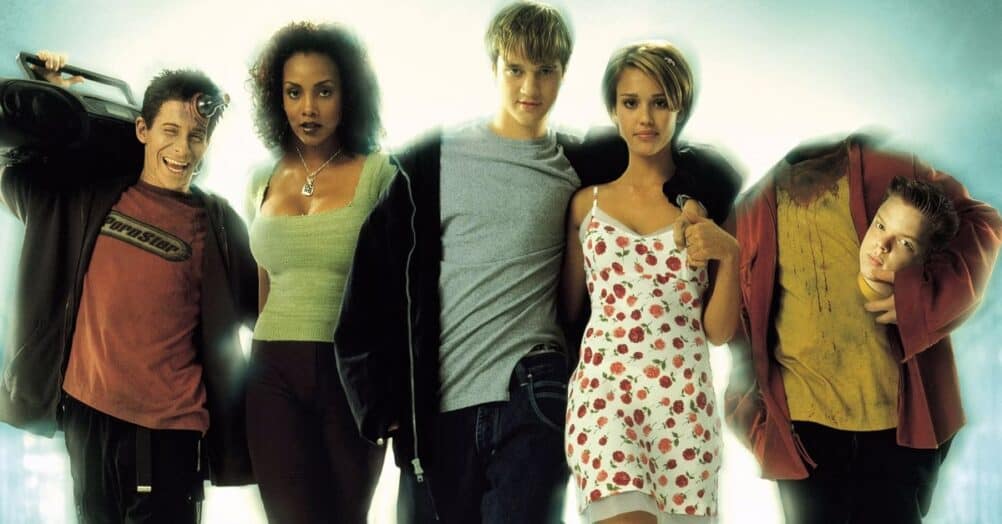
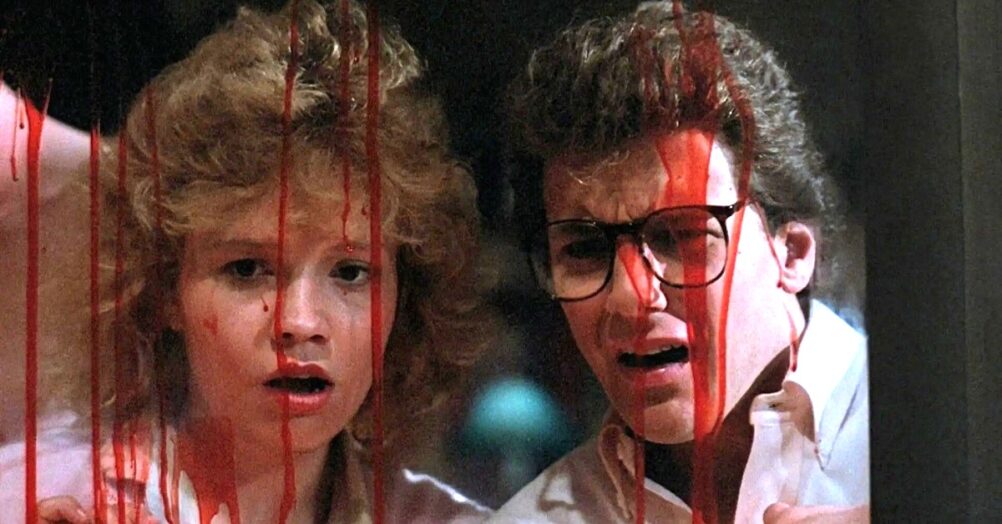
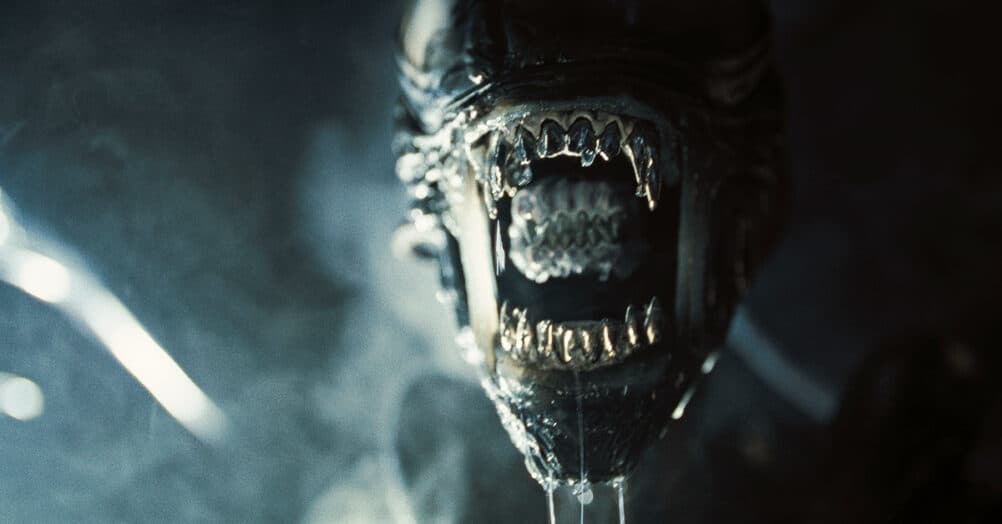
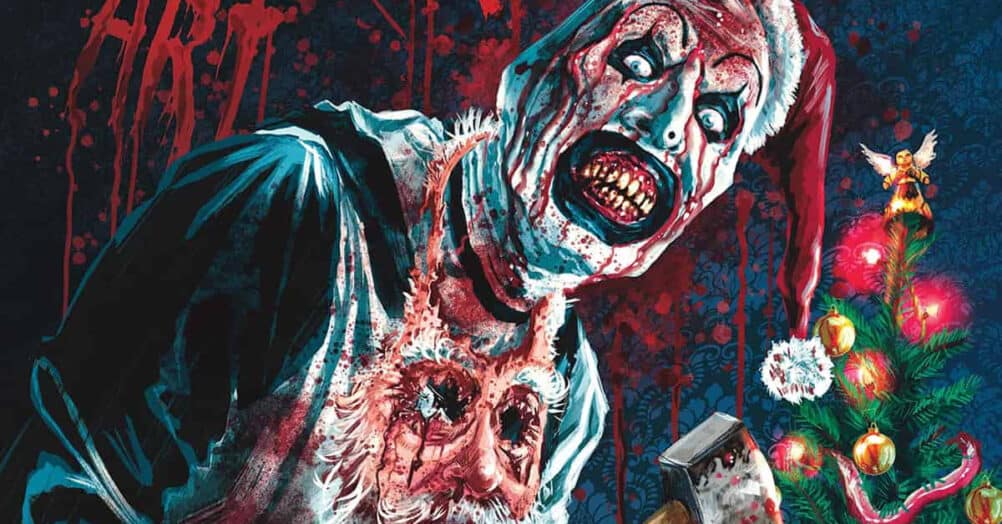
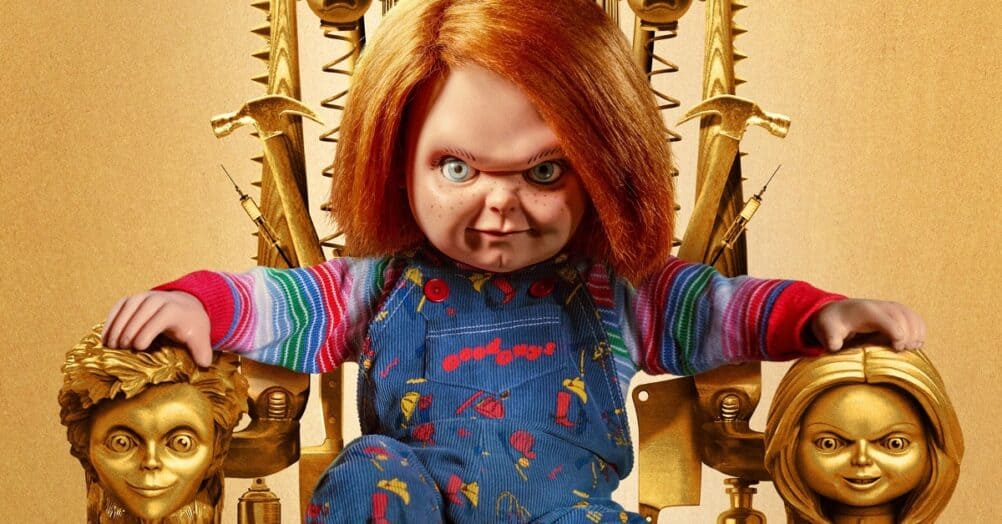
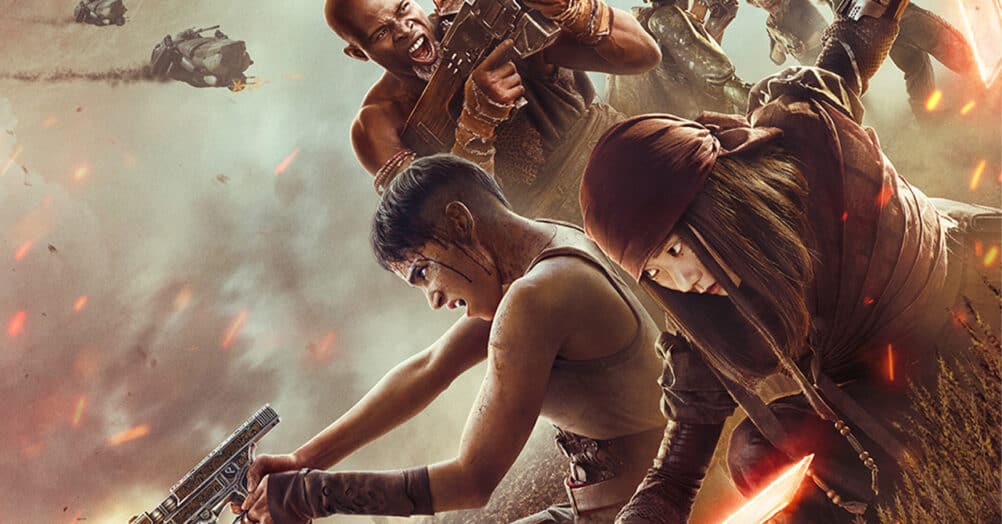

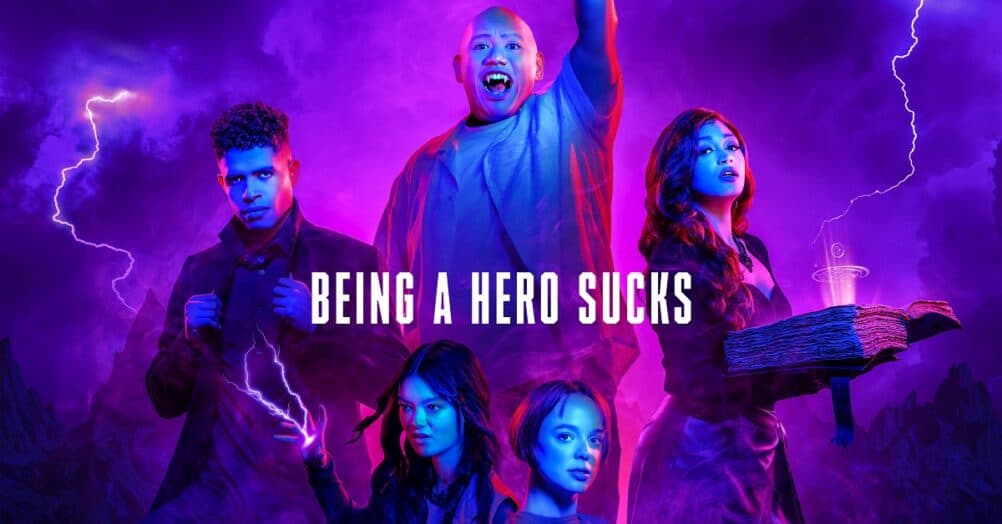
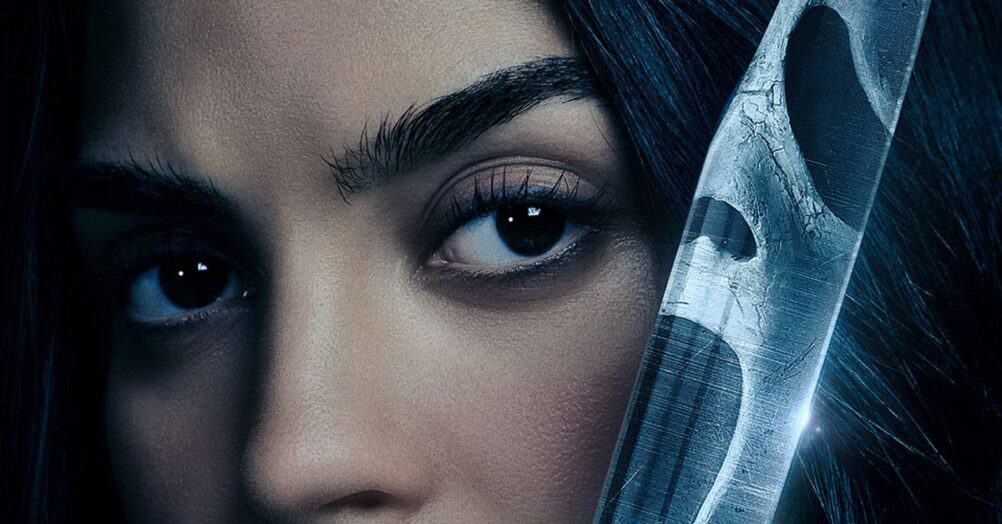
Follow the JOBLO MOVIE NETWORK
Follow us on YOUTUBE
Follow ARROW IN THE HEAD
Follow AITH on YOUTUBE